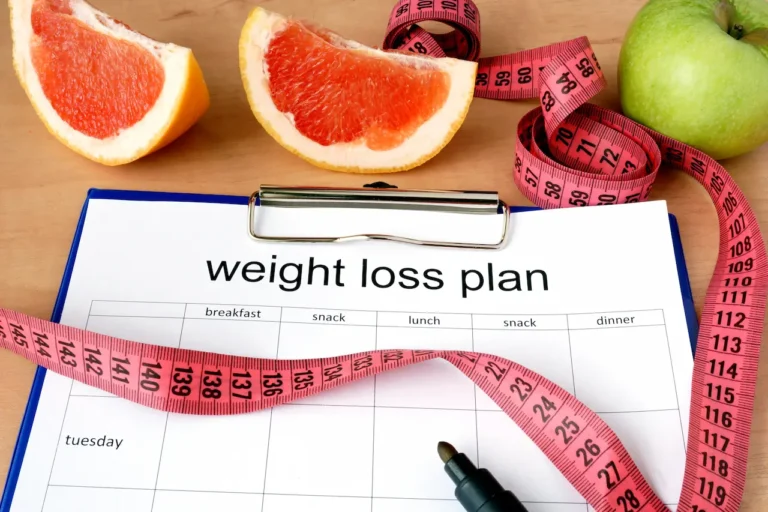Fad-Free Diets: The Path to Sustainable Health
In a world overflowing with diet trends and quick-fix solutions, it’s easy to get lost in the noise of conflicting nutrition advice. Every day, we’re bombarded with new diets promising rapid weight loss, miracle foods claiming to boost metabolism, and celebrity endorsements that make it hard to know what to believe. However, the truth is that sustainable, long-term health doesn’t come from a fad diet—it comes from balanced, evidence-based nutrition that can be maintained over a lifetime. In this blog, we’ll explore the key principles of a fad-free diet and how to make informed choices for a healthier lifestyle.
Table of Contents
Toggle- Fad-Free Diets: The Path to Sustainable Health
- Science-Backed Nutrition Advice
- Aligning with the Australian Dietary Guidelines
- Trusting Recognised Nutrition Professionals
- Customizing Diets to Fit Individual Lifestyles
- Long-Term Sustainability Over Quick Fixes
- Avoiding Diets That Promote or Ban Certain Foods
- Rejecting the One-Size-Fits-All Approach
- Steer Clear of “Miracle” Pills and Quick Fixes
- Conclusion: Embrace a Balanced, Evidence-Based Approach
Science-Backed Nutrition Advice
Healthy Weight Week only promote science-backed nutrition advice. The foundation of any healthy diet should be evidence-based science. Nutrition is a complex field, and while trends come and go, the principles rooted in scientific research remain consistent. When evaluating diet advice, it’s essential to look for recommendations that are supported by robust scientific studies. These studies are typically peer-reviewed, meaning that other experts in the field have evaluated and endorsed the findings.
Scientific research provides us with valuable insights into how our bodies respond to different types of food, how nutrients interact, and what dietary patterns are associated with better health outcomes. By prioritising nutrition advice backed by science, you’re ensuring that your dietary choices are grounded in facts rather than fads. This approach not only supports your health in the short term but also sets the stage for long-term well-being.

Want to track your eating? View: Food And Activity Record
Aligning with the Australian Dietary Guidelines
Another reliable way to assess the validity of a diet is by checking how well it aligns with the Australian Dietary Guidelines. These guidelines are designed to promote health and well-being across the population by recommending a balanced diet that includes a variety of foods from all food groups. They emphasise the importance of eating plenty of vegetables, fruits, whole grains, lean proteins, and dairy while limiting foods high in added sugars, saturated fats, and sodium.
Diets that drastically restrict or eliminate entire food groups, or that push extreme eating patterns, often contradict these guidelines and can lead to nutritional deficiencies or other health issues. By following a diet that fits within the Australian Dietary Guidelines, you’re more likely to achieve a balanced intake of essential nutrients, support your body’s needs, and maintain a healthy weight over time.
Trusting Recognised Nutrition Professionals
In an age where anyone can share diet advice online, it’s crucial to seek guidance from professionals with recognised nutrition qualifications. Accredited Practicing Dietitian’s (APDs), for example, have undergone extensive education and training to provide accurate, individualised nutrition advice. They are equipped to help you navigate the overwhelming amount of information available and tailor dietary recommendations to your specific needs.
Recognized nutrition professionals can also help you set realistic goals, develop sustainable eating habits, and provide ongoing support as you work toward your health objectives. Unlike fad diet promoters, who often lack formal training, qualified professionals are committed to your long-term health and well-being. They understand that nutrition is not one-size-fits-all and are skilled at adapting recommendations to fit your lifestyle, preferences, and health conditions.
Customizing Diets to Fit Individual Lifestyles
One of the hallmarks of a fad-free diet is its adaptability to individual lifestyles. We all have different needs, preferences, and challenges, and a successful diet is one that can be customised to suit your unique circumstances. Whether you have specific dietary restrictions, cultural preferences, or a busy schedule, a flexible approach to nutrition can help you create a balanced diet that works for you.
A fad-free diet recognises that there’s no universal solution when it comes to healthy eating. Instead of following rigid rules or restrictive eating patterns, focus on incorporating a variety of nutrient-dense foods into your meals. This approach allows you to enjoy the foods you love while ensuring that your body gets the nutrients it needs to function optimally. By making small, manageable changes to your diet, you can create sustainable habits that support long-term health.
Long-Term Sustainability Over Quick Fixes
Diets that promise rapid weight loss or dramatic results often appeal to our desire for instant gratification, but they rarely deliver lasting benefits. In fact, these diets can do more harm than good, leading to a cycle of weight loss and regain, frustration, and potential health risks. A fad-free diet, on the other hand, prioritises long-term sustainability over short-term results.
Sustainable diets are built on balanced, moderate eating habits that you can maintain for life. They don’t require extreme calorie restriction, elimination of food groups, or reliance on “miracle” products. Instead, they encourage gradual, consistent changes that promote steady weight loss, improved energy levels, and overall better health. By focusing on long-term goals rather than quick fixes, you’ll be more likely to achieve lasting success and avoid the pitfalls of yo-yo dieting.
Avoiding Diets That Promote or Ban Certain Foods
One of the red flags of a fad diet is its tendency to promote or ban certain foods or food groups entirely. While it’s true that some foods are more nutrient-dense than others, a healthy diet should include a wide variety of foods to ensure you get all the nutrients your body needs. Diets that demonize entire food groups, such as carbohydrates or fats, are not only unsustainable but can also lead to nutrient deficiencies and disordered eating patterns.
Instead of focusing on what you can’t eat, a fad-free diet encourages you to focus on what you can enjoy. By incorporating a diverse range of foods into your meals, you’ll find it easier to stick to your diet and feel satisfied. Remember, balance is key—there’s room in a healthy diet for all types of foods, as long as you practice moderation and mindful eating.

Rejecting the One-Size-Fits-All Approach
Another common characteristic of fad diets is the promotion of a one-size-fits-all approach to eating. These diets often ignore the fact that everyone’s body is different, with varying nutritional needs, metabolic rates, and health goals. What works for one person may not work for another, and trying to force a rigid diet plan onto your life can lead to frustration, burnout, and failure.
A fad-free diet acknowledges that there is no single “perfect” way to eat. It’s about finding what works best for you and your body. This might mean experimenting with different foods, meal timing, or portion sizes to see what makes you feel your best. By embracing a personalised approach to nutrition, you’ll be more likely to develop a positive relationship with food and maintain healthy eating habits over time.
Steer Clear of “Miracle” Pills and Quick Fixes
In the world of fad diets, “miracle” pills, potions, and supplements are often touted as the key to rapid weight loss or boosted metabolism. However, these products are usually backed by little to no scientific evidence and can pose significant health risks. They may provide temporary results, but they are not a sustainable or healthy way to manage weight or improve your health.
Instead of relying on quick fixes, focus on building a strong foundation of healthy habits that support your overall well-being. Regular physical activity, balanced meals, and sufficient sleep are all essential components of a healthy lifestyle that cannot be replaced by a pill or supplement. By taking a holistic approach to your health, you’ll achieve more meaningful and lasting results.
Conclusion: Embrace a Balanced, Evidence-Based Approach
Navigating the world of nutrition can be challenging, but by embracing a fad-free diet, you’re choosing a path that leads to sustainable, long-term health. By prioritising science-backed advice, aligning with established dietary guidelines, trusting qualified professionals, and customizing your diet to fit your lifestyle, you can achieve your health goals without falling prey to the latest diet trends. Remember, true health is not about quick fixes or restrictive eating—it’s about balance, moderation, and making informed choices that nourish your body for life.

